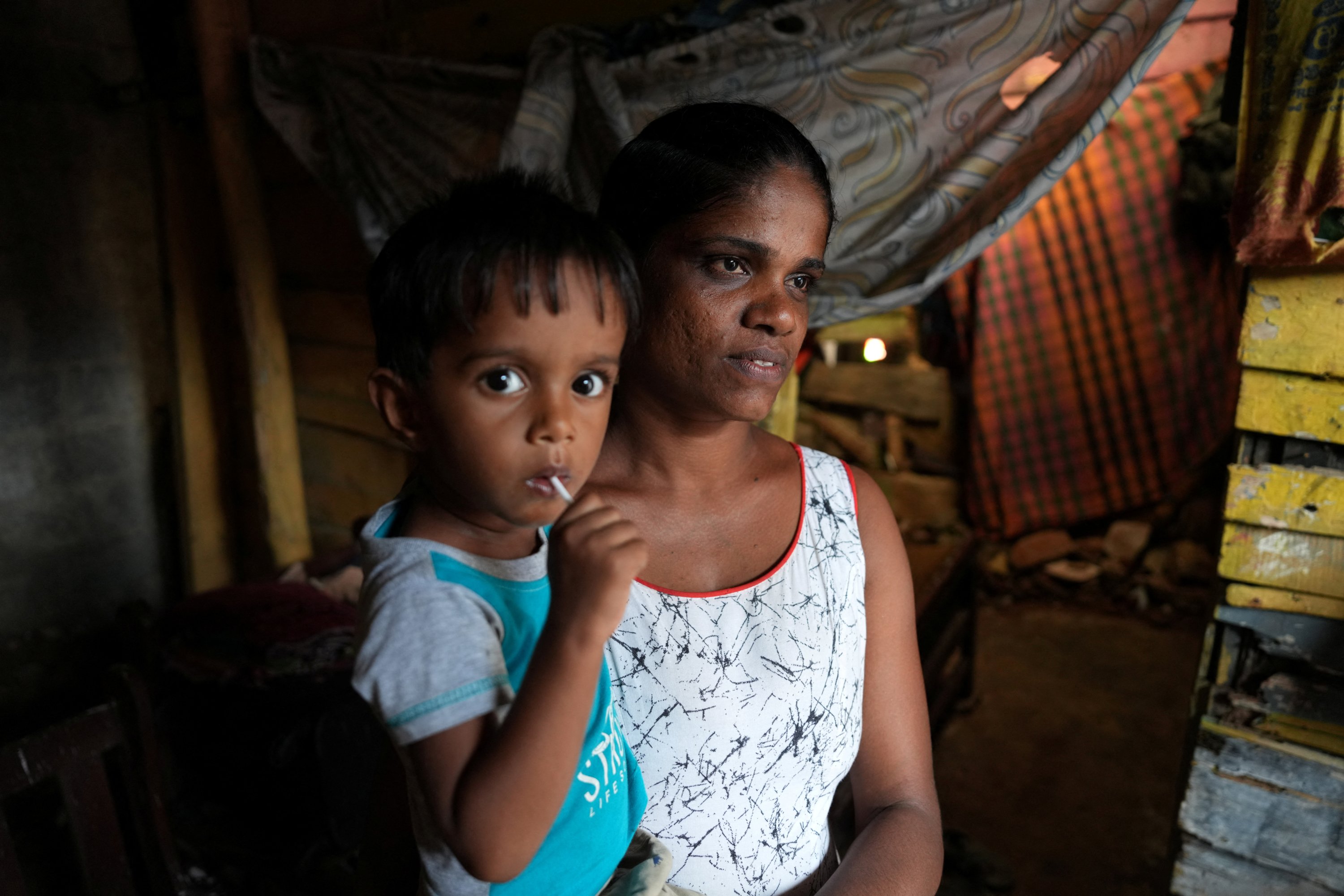[ad_1]
Crisis-hit Sri Lankan voters, struggling with higher prices, especially for food, are looking at this weekend’s election, pinning hopes for economic relief to come with the new president.
Lankika Dilrukshi, a housewife says she is tired of the daily struggle needed to provide for her children. On Saturday, she is voting in a presidential poll she sees as key to securing a better future for herself and her nation.
Dilrukshi, 31, is one of the millions of people barely able to make ends meet since the island nation’s economy plunged into its worst financial crisis in decades in 2022.
“Life has become so difficult, we need change,” she said. “We need a leader who will work for the poor.”

The economic recovery is at the core of the three-way election battle between President Ranil Wickremesinghe, opposition leader Sajith Premadasa and Marxist-leaning politician Anura Kumara Dissanayake.
The three are frontrunners and have promised new strategies to rescue the economy, lower taxes and support businesses. Sri Lanka’s poor and middle class want an equitable economic recovery that will support their aspirations, said Umesh Moramudali, who teaches economics at the University of Colombo.
“The poor are really, really struggling. Higher prices hurt them most, especially higher food prices,” he said.
Although inflation cooled to 0.5% last month and gross domestic product (GDP) is forecast to grow 3% in 2024, for the first time in three years, the change is slow and yet to trickle down.
Sri Lankans were hit hard by the 2022 economic crisis, which was triggered by a severe shortfall of foreign currency that added to problems caused by the pandemic.
Inflation soared to 70%, the rupee depreciated 45% and the economy shrank by 7.3%, forcing the government to seek the International Monetary Fund (IMF) bailout.
The latest government data shows that in 2023, 7 million people – almost one-third of the total population – were considered poor.
By mid-2023, about nearly half of all families had limited their food intake, data from 10,000 households gathered by Colombo think tank LIRNEasia showed.
Rising food insecurity also led to malnutrition in children, with the number of those with stunted growth increasing to over 17% in 2023 from 12% in 2021.
Burdened by new taxes and fewer high-earning jobs, migration has skyrocketed. More than 600,000 people left the country for work over the last two years, compared to 122,264 in 2021, according to government data.
Fruit seller Nancy Hemalatha, 61, borrowed 150,000 rupees ($495) to fund her business and says she barely has 2,000 rupees left every day after repaying the loan.
“My two youngest sons want to migrate. That is their focus now,” Hemalatha said.
As for housewife Dilrukshi, whose laborer husband earns about 2,500 rupees ($8) daily, frugality is the only way to survive.
She keeps poultry and fish out of meals to funnel funds toward her 13-year-old daughter’s education and borrows small amounts from neighbors.
“I want everyone to have a better future…so that my daughter can become a doctor,” she said. “That is what I want to see happen.”
Source

Emil Kovács graduated from the Journalism program at Eötvös Loránd University in Hungary. During his journalism studies, he focused on data journalism, investigative reporting, and multimedia storytelling. He gained experience by writing for the university’s student newspaper, where he gained attention for his articles on social issues. After graduation, Emil began working as a reporter at a European news agency, where he conducts in-depth analyses of international news and current events.



